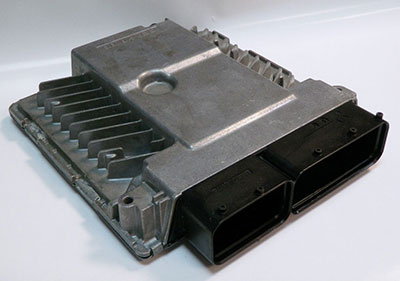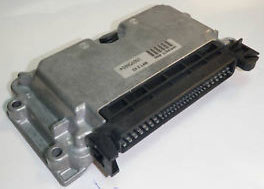In recent years, the automotive industry has witnessed a paradigm shift towards environmental consciousness and stringent emissions regulations. BMW, renowned for its engineering prowess and performance-driven vehicles. It has encountered significant challenges in aligning its Engine Control Units (ECUs) with the evolving emissions standards in the United Kingdom.
Read more: Optimal Fuel Efficiency: Enhancing BMW Performance with ECU Tuning in the UK
Evolution of Emissions Regulations in the UK
The UK government, in line with global initiatives to curb pollution and reduce greenhouse gas emissions, has introduced progressively stringent standards. Controlling vehicle-emitted pollutants like nitrogen oxides (NOx), particulate matter (PM), and carbon dioxide (CO2) has been the main focus.

Impact on BMW ECUs
- Adapting to Euro Emission Standards: BMW’s ECUs have undergone numerous adaptations to comply with successive Euro emission standards enforced in the UK. Each iteration brought about technical challenges in recalibrating engine parameters to meet the lowered emission thresholds while preserving performance.
- EGR and SCR Systems Integration: BMW’s incorporation of Exhaust Gas Recirculation (EGR) and Selective Catalytic Reduction (SCR) systems into their ECUs reflects the brand’s commitment to reducing NOx emissions. The challenge lies in optimizing these systems without compromising driving dynamics.
- Software Updates and Recalls: The continuous evolution of emission regulations often prompts BMW to issue software updates or recalls to modify ECUs in existing vehicles. These updates aim to ensure compliance with the latest emission standards, which can impact vehicle performance and fuel efficiency.
- Electrification and Hybridization: To combat emissions, BMW has invested heavily in electrification and hybridization. ECUs in these vehicles are intricately designed to manage the synergy between electric and combustion power, addressing regulatory concerns while maintaining BMW’s hallmark driving experience.
Regulatory Challenges and Future Prospects
- Striking a Balance: BMW faces the challenge of balancing emissions compliance with customer expectations for performance and driving pleasure. Stricter regulations necessitate innovations that reduce environmental impact without compromising the brand’s identity.
- Cost Implications: Meeting stringent emissions regulations often translates into increased development costs for BMW ECUs. These expenses, including research, development, and implementation of new technologies, can potentially affect vehicle pricing.
- Market Adaptation: The impact of emissions regulations on BMW ECUs extends beyond technical modifications. It influences marketing strategies, shaping the brand’s narrative towards sustainability and eco-friendliness.
Commonly asked questions
1. How do emissions regulations affect BMW vehicles in the UK?
Emissions regulations in the UK necessitate BMW to constantly update and modify their Engine Control Units (ECUs) to comply with stricter emission standards. These changes often involve recalibrating engine parameters and integrating new emission control systems to reduce pollutants emitted by BMW vehicles.
2. Do emissions-related updates to BMW ECUs impact vehicle performance?
While updates to ECUs are primarily aimed at meeting emission standards, they can have an impact on vehicle performance. Modifications to engine parameters might slightly alter power delivery or fuel efficiency, aiming to strike a balance between compliance and performance.
3. What are some specific emission control technologies integrated into BMW ECUs?
BMW employs technologies like Exhaust Gas Recirculation (EGR) and Selective Catalytic Reduction (SCR) systems within their ECUs. These systems are designed to reduce nitrogen oxide (NOx) emissions by treating exhaust gases before they are released into the atmosphere.
4. How often do BMW vehicles require ECU updates due to changing regulations?
BMW periodically releases software updates or recalls to modify ECUs in existing vehicles to comply with evolving emissions regulations. The frequency of these updates varies based on regulatory changes and the vehicle’s model year.
5. Are there any cost implications for consumers due to these emissions-related modifications?
Typically, emissions-related modifications and updates to BMW ECUs are covered under warranties or recalls. However, the introduction of new emission control technologies and compliance measures may influence the overall development cost of vehicles, potentially impacting pricing in the market.
6. How does BMW balance performance and emissions compliance in their vehicles?
BMW strives to strike a balance between meeting stringent emissions regulations and maintaining the performance and driving dynamics expected of their vehicles. Advanced engineering techniques, hybridization, and integration of electric power into their vehicles are some strategies employed to achieve this balance.
7. Can modifications to BMW ECUs affect vehicle warranty?
Generally, modifications made outside the manufacturer’s specifications can void certain aspects of the vehicle’s warranty. It’s advisable to consult with authorized BMW service centers regarding any modifications or updates to ensure compliance without affecting warranty coverage.
8. Are there any prospects for BMW in managing emissions regulations?
BMW continues to invest in research and development for cleaner and more efficient technologies. Their focus on electrification, hybridization, and sustainable mobility solutions indicates a commitment to meeting future emissions regulations while delivering high-performance vehicles.
9. How does BMW communicate these emission-related changes to vehicle owners?
BMW communicates software updates and recalls through various channels, including official notifications via mail or email. Announcements on their website, and coordination with authorized dealerships to ensure owners are informed about necessary updates or modifications.
10. Are emissions-related modifications applicable to all BMW models?
Emissions-related modifications can vary based on the specific model and year of the BMW vehicle. Newer models tend to have more advanced emission control systems and might require different updates compared to older models to comply with current regulations.
Conclusion
The journey of BMW ECUs in the UK amid evolving emissions regulations reflects the automotive industry’s commitment to environmental stewardship. While posing challenges, these regulations stimulate innovation and reinforce BMW’s dedication to delivering vehicles that not only excel in performance but also adhere to stringent environmental standards.
Read more: Coolant System Bleeding In Different Types Of Vehicles
As the automotive landscape continues to evolve, BMW ECUs prowess in adapting to meet emissions regulations will remain pivotal in shaping the brand’s future and contributing to a cleaner, greener automotive ecosystem in the UK.



